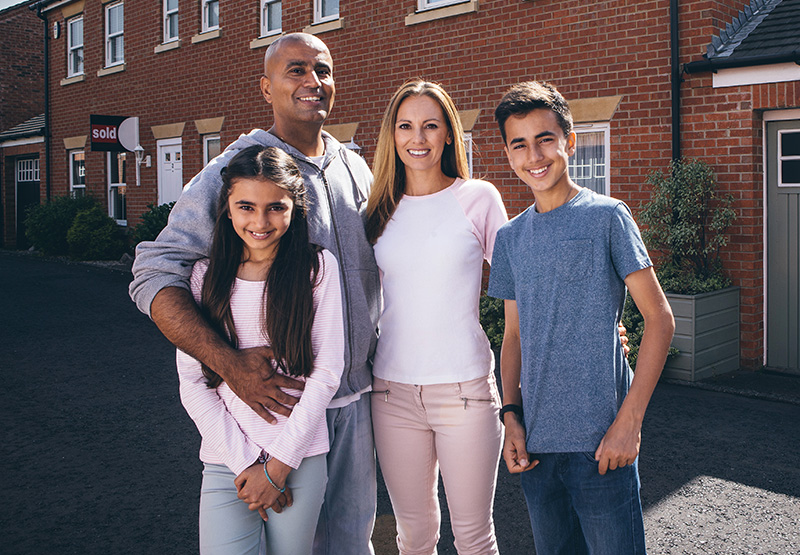Psychiatric problems crop up more than twice as often in families that include a child with autism as in the general population. That’s the upshot of the most sweeping study to date of mental health in siblings of children with autism.

The findings suggest that clinicians should look carefully for signs of other problems in relatives of people with autism.
Autism is known to share genetic roots with a range of psychiatric and developmental conditions. Researchers have shown that nearly half of siblings of children with autism have difficulties with attention, language, learning or mood even when they don’t have autism. These families are also at elevated risk for conditions such as schizophrenia.
“We wanted to see how these disorders aggregate in families and explore the possibility that there could be shared genes or shared environmental exposures driving these outcomes,” says senior researcher Alan Brown, professor of psychiatry and epidemiology at Columbia University. The findings appeared 1 June in JAMA Psychiatry.1
Among siblings of people with autism, Brown’s team found high rates of seven childhood-onset conditions including autism, attention deficit hyperactivity disorder (ADHD) and learning disability. They also found that the siblings have higher rates of schizophrenia and mood disorders, among other mental health problems (see graphic above).
“This might help us identify offspring at high risk of not only autism, but other psychiatric conditions as well,” Brown says.
Paper Trail
The researchers examined the health records of 3,578 children with autism and their 6,022 full siblings, all of whom had been followed since birth as part of the Finnish Prenatal Study of Autism and Autism Spectrum Disorders.
The team also mined three national registries to match each child with autism to four typically developing children of the same sex, born in roughly the same year and from the same geographic area. The total included 15,353 children and their 28,149 siblings.
Roughly 37 percent of the siblings of children with autism have at least one psychiatric or neurodevelopmental condition, compared with about 17 percent of the brothers and sisters of controls. Intellectual disability in the children with autism confers no additional risk for their siblings.
The conditions that emerge in childhood — autism, ADHD, intellectual disability, learning disorders, tic disorders, conduct disorders and emotional disorders — are 2.5 times more common, overall, among siblings of children with autism than among siblings of controls.
Only one condition examined in the study, substance abuse, is not associated with autism.
Most siblings of children with autism were diagnosed earlier than the siblings of controls. “If you’re a parent of a kid with autism, you’re going to be more attuned to a variety of behavioral abnormalities,” Brown says.
If clinicians were to systematically look for signs of other conditions in these siblings, they might spot them even sooner, says Stelios Georgiades, assistant professor of psychiatry and behavioral neurosciences at McMaster University in Hamilton, Ontario, who was not involved in the study.
It would be interesting to assess whether early diagnoses in these siblings will hasten access to treatment and improve their outcomes relative to the siblings of controls, who receive a diagnosis later, Georgiades says.
Stable Estimates
The “impressive” number of participants sets the new work apart from previous analyses, says Sally Ozonoff, vice chair for research in psychiatry and behavioral sciences at the MIND Institute at the University of California, Davis, who was not involved in the research.
By using a nationally representative sample rather than recruiting families, the researchers skirted possible bias toward more severely affected families, who are more likely to participate in autism research, Ozonoff says.
The new study offers “stable and valid estimates of the prevalence of psychiatric and neurodevelopmental disorders in the siblings, which is really helpful,” she says.
Registry data aren’t perfect, however. Some of the siblings might have had conditions that went undiagnosed, particularly because diagnostic criteria for autism have changed over the years, Ozonoff says. The researchers also did not independently confirm the diagnoses.
These factors, Ozonoff says, may explain the markedly low rate of autism in the siblings of children with autism. Only 10.5 percent of these siblings had an autism diagnosis in the study, compared with an earlier estimate of 20 percent for the younger siblings of children with autism.
Brown’s team plans to tap into the Finnish registries again to see if any of the undiagnosed siblings received a psychiatric diagnosis later in life. “These siblings are quite young. It may be that we see bigger effects over time,” Brown says.
This article was originally published on Spectrum and is reprinted with permission. You may view the original article, published 23 June 2016, at https://spectrumnews.org/news/psychiatric-problems-common-in-siblings-of-people-with-autism/.
References
1. Jokiranta-Olkoniemi E. et al. JAMA Psychiatry 73, 622-629 (2016) PubMed



